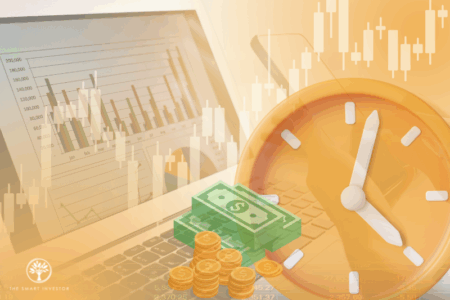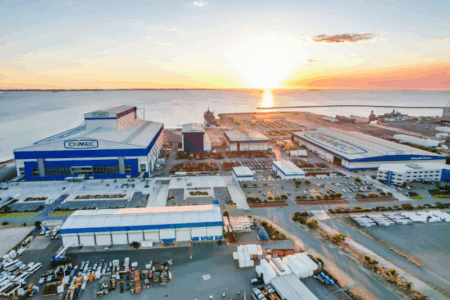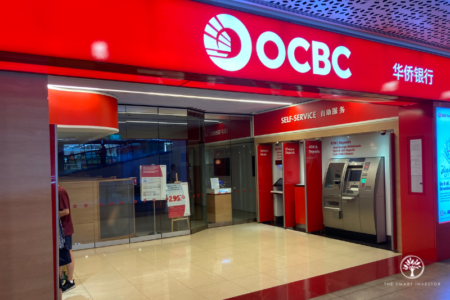Recently, Cathie Wood’s ARK Invest was in the news for all the wrong reasons.
Its flagship fund, ARK Innovation ETF (NASDAQ: ARKK), was all the rage back in 2020 and 2021 as fund manager Cathie Wood placed concentrated bets on several high-growth tech firms.
Alas, the surge in popularity proved to be short-lived.
Morningstar’s analysis showed that Wood’s fund had lost around US$14.3 billion of wealth over the past decade.
To rub salt on the wound, this loss was more than double the next firm on the list of wealth destroyers.
Could Wood recover the losses?
Interestingly, she could, if not for her mistake in selling Nvidia (NASDAQ: NVDA) too early.
Missing out on a giant rally
Wood is known for her big moves.
Back in the fourth quarter of 2022 (4Q 2022), she made an ill-timed move to sell off Nvidia shares across ARK Invest’s suite of investment products.
According to 13F filings with the US Securities and Exchange Commission, ARK Invest sold 859,000 Nvidia shares when its shares were trading below US$15 per share.
Of course, we all know what happened next.
Due to this sale, ARK Invest missed out on a potential US$1.2 billion in profits that would have benefitted its investors as Nvidia’s share price closed at US$117.93 recently.
Here’s the catch.
Cathie thought that she had locked in a great profit for the fund by selling Nvidia.
ARK Invest first purchased Nvidia in 4Q 2016 at an estimated average price of US$8.10.
So, the sale had netted the firm nearly 100% in profits.
What she did not realise, in hindsight, is that holding on to those Nvidia shares would have netted the fund much larger profits.
Selling too soon
As the saying goes – you never go broke taking profits.
To be fair, Wood did what most investors would do, which is to take her winnings off the table. .
But, let’s take a moment to think about this statement.
While it is true that you will not go broke by realising your gains, what’s not mentioned is the potential profits you would have missed had you decided to hold on to those shares.
If you think Nvidia’s example is extreme, let’s have a look at a stock closer to home.
More than four years ago in May 2020, iFAST Corporation (SGX: AIY) was trading at around S$1 per share.
Source: Google Finance
The fintech company then saw its share price surge in response to an influx of funds as more people stayed home and traded stocks during the pandemic.
Within just three months, its share price has more than doubled to more than S$2.
Imagine if you had sold iFAST at S$2.35 (above) and locked in a juicy profit of 130%.
At first brush, it’s a tidy profit.
Yet, you would have subsequently missed out as the stock more than tripled in the years after, closing at S$7.29 recently.
That’s not even counting the annual dividends that the stock would have paid out from late 2020 to the present.
Finding another stock which would have produced the same returns would have been hard, to say the least. To use an analogy, it’s like having a winning ticket in your hand only to throw it away hastily.
Said another way, selling too early would have cost you a significant sum in future profits.
What’s more, you’ll miss out on the dividend income too.
Catalysts and patience pay off in spades
The two examples above should convince you of the wisdom of not selling your shares too early.
But what should you look for in deciding if a stock is worth owning for the long term?
In one word – catalysts.
If a stock’s price shoots up, don’t be too quick to pull the trigger.
After all, there could be something good happening with the business.
For instance, it may be experiencing a surge in revenue and profitability that justifies a higher valuation, or a higher earnings per share could result in a re-rating of the stock.
Instead, what you should find out is whether these catalysts are sustainable.
In essence, if the business enjoys long-term tailwinds and management is committed to growing the business further, then it may not make sense to sell the stock too soon.
Patience can land you much larger capital gains if you choose to hold on to the stock and ride the upward wave.
Get Smart: Business growth takes time
The lesson here is to focus your attention on how the business is doing.
Remember that when the business does well, the stock will eventually follow.
The stock price may not do so immediately in the near term but the key word here is “eventually”.
That’s why patience is so important when it comes to investing.
By holding on to great businesses over years or even decades, you can compound your wealth to a tremendous size to better prepare for your retirement.
But don’t worry if you missed out on Nvidia or iFAST’s blistering rally, there are always other opportunities to be found.
Ready to discover the next $100 billion stock? Our newest FREE report dives deep into five popular SGX companies that many say are the next big thing. Read our team’s findings to guide your investment strategy. Click the link here to download now.
Follow us on Facebook and Telegram for the latest investing news and analyses!
Disclosure: Royston Yang owns shares of iFAST Corporation.





